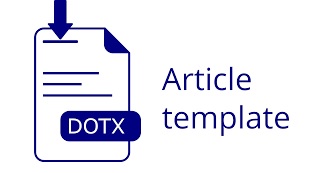Karakteristik Anggota Dewan Perwakilan Rakyat Daerah sebagai Variabel Anteseden Tingkat Korupsi dan Implikasinya terhadap Kualitas Audit (Studi Kasus di Pemerintah Provinsi Banten)
DOI:
https://doi.org/10.30656/sawala.v8i1.1890Abstrak
Tujuan penelitian ini untuk mengetahui pengaruh Personal Background, Political Background, pengetahuan dan Pemahaman anggota Dewan Perwakilan Rakyat Daerah Propinsi Banten terhadap tingkat Korupsi serta implikasinya terhadap Kualitas Audit. Populasi penelitian ini adalah seluruh anggota DPRD Provinsi Banten sejumlah 85 orang. Metode analisis data penelitian ini yaitu analisis regresi berganda. Hasil pengujian menunjukkan Personal background, pengetahuan dan Pemahaman anggota Dewan Perwakilan Rakyat Daerah Provinsi Banten berpengaruh menurunkan terhadap tingkat Korupsi. Hasil lainnya, Tingkat Korupsi berpengaruh negatif terhadap Kualitas Audit. Sedangkan Political Backgroundtidak berpengaruh.Â
Â
Â
The purpose of this study was to determine the effect of Personal Background, Political Background, knowledge and understanding of members of the Banten Province Regional Representative Council on the level of Corruption and its implications for Audit Quality. The population of this study was all members of the Banten Province DPRD numbering 85 people. The data analysis method of this research is multiple regression analysis. The test results show that the Personal background, knowledge and understanding of the members of the Regional Representatives Council of Banten Province has the effect of reducing the level of Corruption. Other results, the level of corruption has a negative effect on audit quality. While the Political Background has no effect.
Referensi
Daftar Pustaka
Andersson, S., & Bergman, T. (2009). Controlling corruption in the public sector. Scandinavian Political Studies, 32(1), 45-70.
Ahmed, N. (2001). Development and working of parliaments in South Asia. Asian Journal of Political Science, 9(1), 18-48.
Afridi, F., Iversen, V., & Sharan, M. R. (2017). Women political leaders, corruption, and learning: Evidence from a large public program in India. Economic Development and Cultural Change, 66(1), 1-30.
Biryukov, S. V. (2019). Uzbekistan as a Mirror of Change in Central Asia: A Sultanistic Regime and Its Transformation. Asian Survey, 59(2), 337-359.
Gustavson, M. (2015). Does good auditing generate quality of government?.
Forum for Corporate Governance Indonesia. (2002). Peran Dewan Komisaris dan Komite Audit dalam Pelaksanaan Corporate Governance.
Hendrawan, A., Yulianeu, A., & Cahyandi, K. (2018). Pengaruh Komptensi Terhadap Kinerja Tim. Journal of Management Review, 2(1), 143-150.
He, K., Pan, X., & Tian, G. G. (2017). Political connections, audit opinions, and auditor choice: Evidence from the ouster of government officers. Auditing: A Journal of Practice & Theory, 36(3), 91-114.
Kartikasari, D. (2012). Pengaruh Personal background, Political background, pemahaman regulasi terhadap peran anggota DPRD dalam pengawasan keuangan daerah (studi kasus pada DPRD Kabupaten Boyolali). Accounting Analysis Journal, 1(1).
Kassem, R., & Higson, A. W. (2016). External auditors and corporate corruption: Implications for external audit regulators. Current Issues in Auditing, 10(1), P1-P10.
La Palombara, J. (Ed.). (2015). Bureaucracy and Political Development.(SPD-2) (Vol. 2). Princeton University Press.
Martin, S., & Whitaker, R. (2019). Beyond committees: parliamentary oversight of coalition government in Britain. West European Politics, 1-23.
Malagueño, R., Albrecht, C., Ainge, C., & Stephens, N. (2010). Accounting and corruption: a cross-country analysis. Journal of Money Laundering Control, 13(4), 372-393.
Mauro, P. 1995. ‘Corruption and Growth’, Quarterly Journal of Economics 110, 681–712.
Norton, P., & Ahmed, N. (1998). Legislatures in Asia: exploring diversity. The Journal of Legislative Studies, 4(4), 1-12.
McMann, K. M., Pemstein, D., Seim, B., Teorell, J., & Lindberg, S. I. (2016). Strategies of validation: Assessing the varieties of democracy corruption data. V-Dem Working Paper, 23.
Prabowo, H. Y., & Cooper, K. (2016). Re-understanding corruption in the Indonesian public sector through three behavioral lenses. Journal of Financial Crime, 23(4), 1028-1062.
Prihatini, E. S. (2019). Women who win in Indonesia: The impact of age, experience, and list position. In Women's Studies International Forum (Vol. 72, pp. 40-46). Pergamon.
Rocabert, J., Schimmelfennig, F., Crasnic, L., & Winzen, T. (2019). The rise of international parliamentary institutions: Purpose and legitimation. The Review of International Organizations, 14(4), 607-631.
Rose-Ackerman, P. S. (2017). Political corruption and reform in democracies: theoretical perspectives. In Comparing political corruption and clientelism (pp. 65-82). Routledge.
Rose-Ackerman, S., & Palifka, B. J. (2016). Corruption and government: Causes, consequences, and reform. Cambridge university press.
Republik Indonesia. 2004.Undang-Undang Nomor 32Tahun 2004 tentang Pemerintah Daerah
_____ 2004.Undang-Undang Nomor 33Tahun 2004 tentang Pemerintah Daerah
______2009.Undang-Undang Nomor 27Tahun 2009 tentang Majelis PermusyawaratanRakyat, Dewan perwakilan Rakyat, DewanPerwakilan Daerah, dan Dewan PerwakilanRakyat Daerah.
Witono, B., & Baswir, R. (2003). An Analysis on Influence of Personal Background and Political Culture on Regional Parliament's Role in Regional Financial Oversight: Analisis Pengaruh Personal Background dan Political Culture terhadap P eran DPRD dalam. Sosiohumanika (Vol. 16/A), 16(2003).
Winarna, J., & Murni, S. (2007). Pengaruh personal background, political background dan pengetahuan dewan tentang anggaran terhadap peran DPRD dalam pengawasan keuangan daerah (Studi Kasus Di Karesidenan Surakarta dan Daerah Istimewa Yogyakarta Tahun 2006). Jurnal Bisnis dan Akuntansi, 9(2), 136-152.
Zyglidopoulos, S., Hirsch, P., Martin de Holan, P., & Phillips, N. (2017). Expanding research on corporate corruption, management, and organizations.









